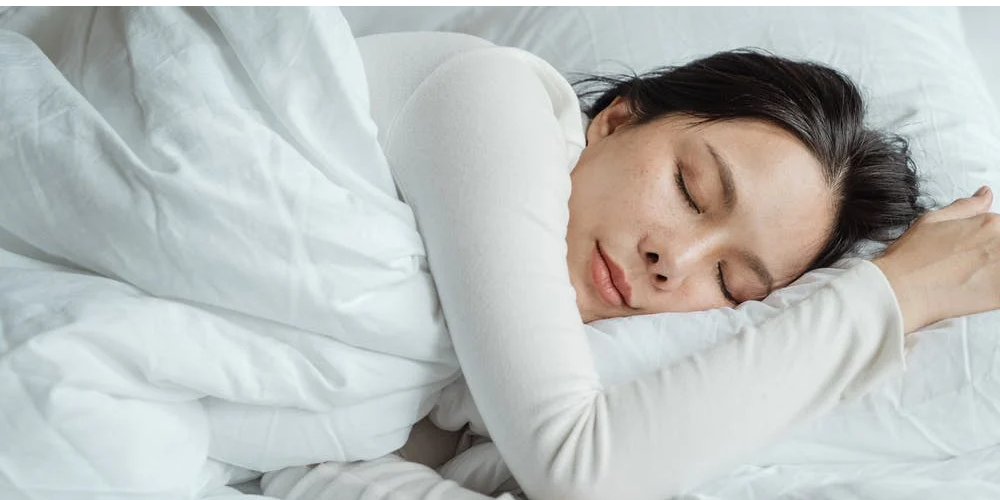Can you recall the last time you had a day out for yourself in between your busy schedule? Or the last time you went to bed without overthinking?
Well, most of us can’t. With our busy lifestyles and hectic schedules, we simply overlook the importance of the basic 3 tiers of health- nutrition, exercise, and proper sleep.
While we still focus on keeping our diet and physical activity routines updated, one thing we tend to overlook is the importance of peaceful and timely sleep.
Yes, we get it. We are busy. We don’t have time. Our sleep cycles are accustomed to late hours now. But it all boils down to one point- compromised health even after proper diet and exercise.
So, is there a way we can fix our sleep schedules?
Frankly speaking, you will find an ample amount of information on how poor sleep can affect your mental health, but you will only get to realize it when nights of tossing and turning in bed wake you up cranky, irritated, and distracted.
The Science Behind Restful and Good Sleep
Your sleep cycle is governed by an internal body clock that determines when you feel sleepy and ready for bed or awake and alert.
This body clock runs on a 24-hour cycle called the circadian rhythm. If this cycle gets disturbed, you will wake up tired and this will continue throughout the day.
The circadian cycle also works on the principle of light. It releases a hormone called melatonin, also called the ‘sleep hormone’.
As natural light disappears in the evening, the body releases melatonin, which induces sleep; and when the sun again rises, the body releases cortisol, which promotes energy and stamina.
It is advised for adults to get at least 7-9 hours of daily sleep at night for effective cognitive and behavioral functions.

The Effects of Poor Sleep on Your Health
While we say nutrition, exercise, and sleep go hand-in-hand for healthy well-being, clearly, something as important as sleep cannot be ignored. If you have sleep deprivation, you might experience negative health outcomes like-
Low Immunity
When you do not get enough sleep, the number of T-cells that help fight off infections becomes significantly inactive, leading to a weak immune system. This can lead to frequent health problems.
Obesity
Poor sleep increases the risk of unhealthy weight gain and causes obesity. This is due to certain hormones produced by the body that increase or decrease your hunger levels. Lack of sleep can disturb these hormones and your hunger levels can rise causing you to overeat.
Reduced Cognitive Performance
Your brain function is compromised to a significant extent when you do not get proper and healthy sleep. Good sleep helps you concentrate, increase your memory power and keep you attentive.
Compromised Mood and Mental Health
People who do not get enough sleep can suffer from mental health issues like anxiety, depression, stress, etc. which can cause serious emotional and health consequences.
The Concept of Sleep Hygiene
Sleep hygiene is a term very common when it comes to your sleep habits. It can include good and bad sleep hygiene, which is influenced by your daily lifestyle, diet, physical activity, etc.
Good sleep hygiene involves the following factors which can help you observe your sleeping schedule and which you must take note of while trying to follow a planned sleeping schedule-
Practice Short Naps
Napping is a good practice, but what is important is limiting the time of your daily naps. Sleeping in the afternoon hampers your sleep at night. Thus, it is advised to take a nap of no more than 20 minutes in the afternoon.
Follow a Consistent Sleep Schedule
The consistency of going to bed and waking up is very important. Try to sleep and wake up at the same time every day. This will get you in the habit of sleeping and waking up early.
Do not Skip Your Sleep Wave
Your body tends to get into sleep waves when you are tired or exhausted. Skipping that sleep wave is something most of us do, for one reason or the other. Make sure you go to bed when you are actually sleepy to keep your 24-hour circadian cycle working effectively.
Stay Away from Distractions When You Go to Sleep
One of the most common reasons why we do not get enough sleep is our habit of scrolling through our mobile phones or watching when we go to bed. Additionally, watching movies or continuously texting are daily distractions that hamper our sleeping schedule. Thus, prefer leaving all electronic devices ( mobile phones, laptops, etc.) away 30 minutes prior you go to sleep.
Bottom Line
Sleep, diet, and exercise are the main three pillars of optimum health that go hand-in-hand. A balance of right nutrition, daily physical activity, and proper sleep is how you can maintain a healthy work-life balance.
It is also advised to consult your healthcare provider in case you suffer long-term sleep deprivation problems.

